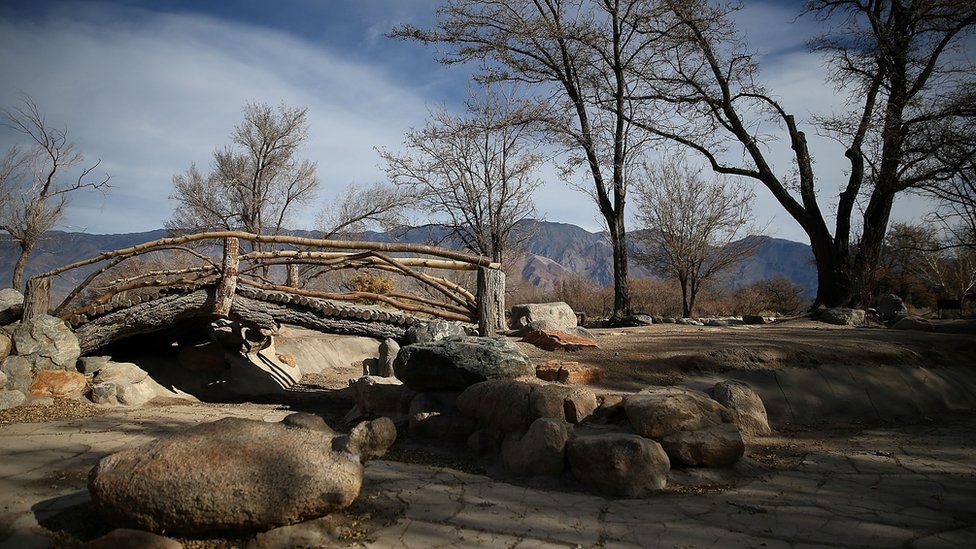Japan to restore neglected gardens abroad
- Published

Japan is to send gardening experts around the world to restore Japanese-style gardens that have fallen into a state of neglect, officials say.
The gardens have unique features such as stone bridges, ponds, moss-covered paths, stone lanterns and carefully tended miniature trees.
Local gardeners have been overwhelmed by the task of maintaining them.
There are about 500 Japanese gardens around the world of which 40 are in disrepair, the land ministry said.
They require pruning, new plants and trees, and work on traditional stone lanterns that have fallen over.
Officials say the plan is a way of promoting Japanese culture abroad.
The gardens are used by Japanese groups abroad for tea ceremonies, festivals and other events to introduce people to Japanese culture, the Asahi Shimbun newspaper reported.
Embassies have asked the government in Tokyo for help to restore the gardens, AFP news agency reported.
The land ministry says it will send a five-person team to rebuild Japanese gardens in Romania and the US state of California later this year.
The ministry also plans to hold lectures and provide manuals to enable local gardeners to maintain the gardens.
How a vandalised Japanese garden in Scotland was restored
The first overseas Japanese garden was created by the Japanese government in 1873 as part of the Vienna World Expo, and the interest it sparked led to more being built.
Further Japanese gardens were created abroad as part of diplomatic initiatives after World War Two.
The gardens measure about 5,000sq m (1.23 acres) each and are present in more than 100 countries, the Asahi Shimbun said.
- Published13 May 2016
- Published13 May 2016